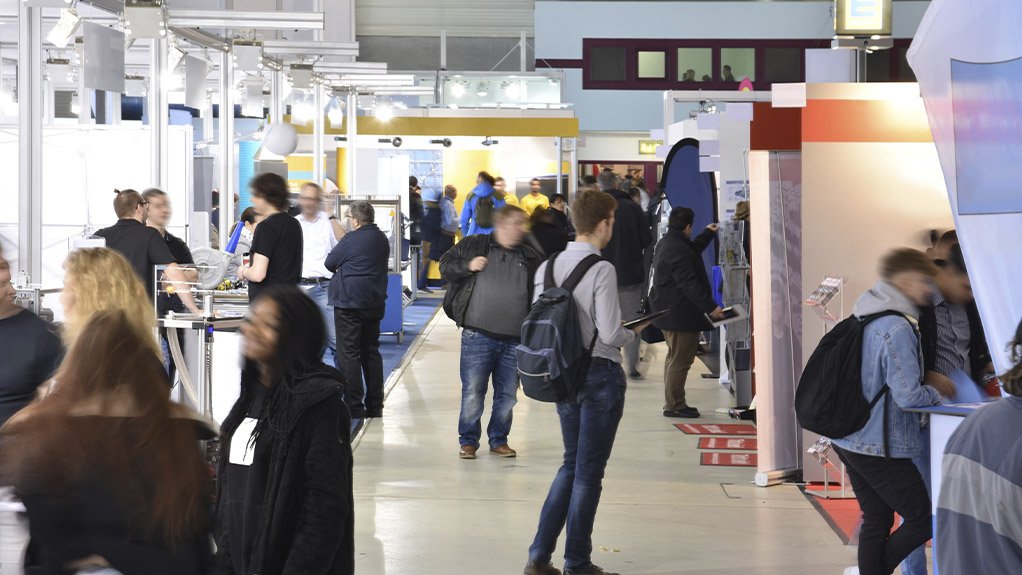The Exhibitions and Events Association of Southern Africa (EXSA) strives to increase the significance of exhibitions and events in the marketing mix to demonstrate the power of face-to-face marketing while promoting and growing the Southern African exhibition and events industry.
EXSA represents relevant industry supplier members and its role is to protect and promote the interests of its supplier members, exhibitors and the general public.
“EXSA recognises that being aligned with local and global exhibition and event industry associations – such as EXSA – provides opportunity for reciprocity and collaboration. This alignment with industry associations will create invaluable resources and contacts, access to information and training and the exchanging of insights that are necessary for the benefit of every business to further education and certification,’, says EXSA vice chairperson Gill Gibbs.
Industry associations are an important part of the growth and continued success of the members that they serve. Industry associations set regulations and provide extensive knowledge for companies in their relevant industry.
Exhibitions and events are “critical” to South Africa’s economy, with the meetings, incentives, conventions, exhibitions and events (MICE) industry contributing to the total output, employment and gross domestic product.
Business event planning and all that it entails provides a significant financial boost for South Africa by stimulating the economy and promoting local development, while through the associated organised touristic activities, visitors are exposed to its warm welcome, beautiful offerings and destinations.
Exhibitions and events also have a direct and positive financial impact on entrepreneurs and their exposure in the tourism sector, adds Gibbs.
She adds that business tourism contributed R115-billion to the local economy last year, as pointed out at Meetings Africa, held last year on February 26 and 27, at the Sandton Convention Centre, in Johannesburg.
The chosen host city for the event benefits through economic growth and this also provides an opportunity for greater touristic prominence for the relevant city and the broader region, which in turn, creates employment opportunities. This includes employment for the professionals hired to host the event, as well as for the infrastructure, service and logistics companies.
Additionally, the MICE industry attracts about one-million delegates a year at business events locally, supporting more than 250 000 jobs directly and indirectly in this subsector, according to the South African National Convention Bureau (SANCB).
Moreover, Gibbs notes that the SANCB is focusing its efforts on attracting events in economic sectors that have been identified by government as priority sectors for future development.
These include manufacturing, with a specific focus on areas in which South Africa excels, including automotive, chemicals, pharmaceuticals, agroprocessing, electronics and biofuels.
Meanwhile, in terms of its global impact, the MICE industry is projected to reach about $1 439.3-billion in 2025, according to a report published by global market research firm Allied Market Research in April 2019.
Integrated travel management platform, Carlson Wagonlit Travel’s (CWT’s) global meetings and events division – CWT Meetings and Events – predicts that the meetings and events industry is poised to see an 8% growth in travel in 2020, despite some economic slowdown, according to its ‘2020 Future Trends Report’, published in September.
CWT Meetings and Events CEO Kurt Ekert says that, despite predictions of economic slowdown and recession, the need for live events is becoming more relevant than ever before, with up to 30% of marketing budgets expected to be spent on live events in 2020.
Edited by: Zandile Mavuso
Creamer Media Senior Deputy Editor: Features
EMAIL THIS ARTICLE SAVE THIS ARTICLE
ARTICLE ENQUIRY
To subscribe email subscriptions@creamermedia.co.za or click here
To advertise email advertising@creamermedia.co.za or click here













